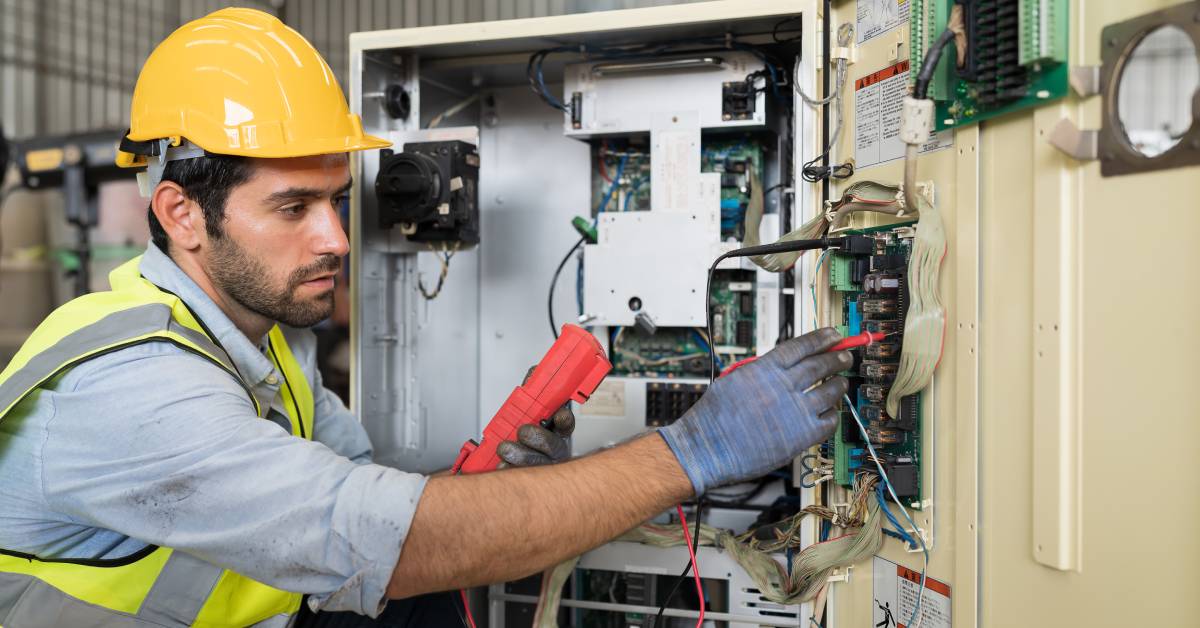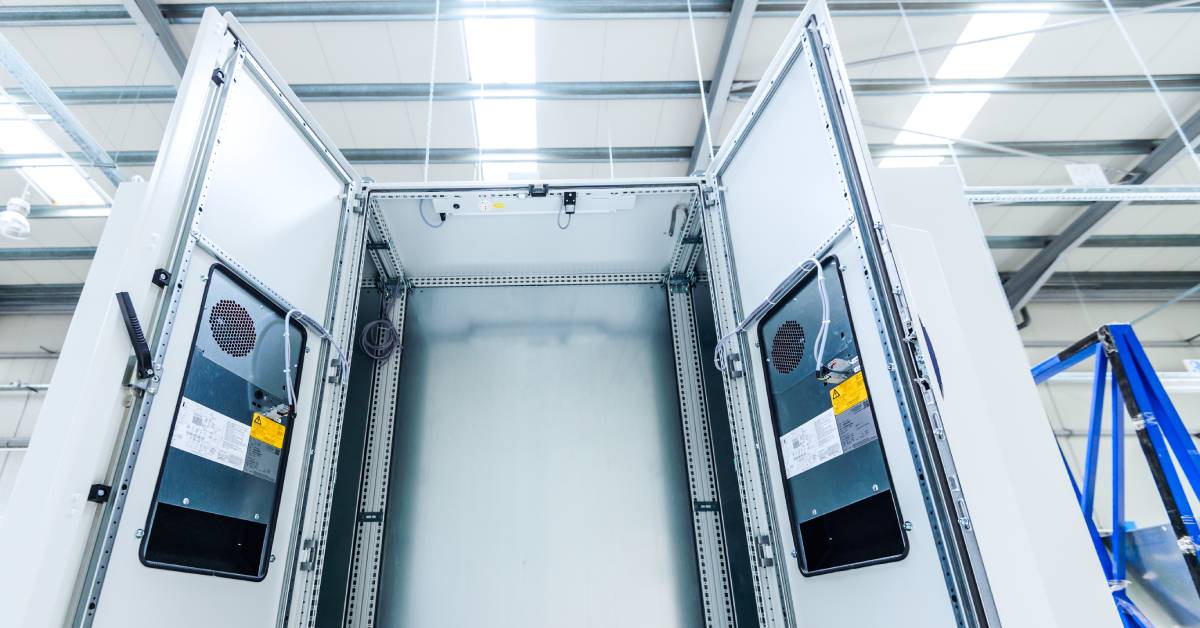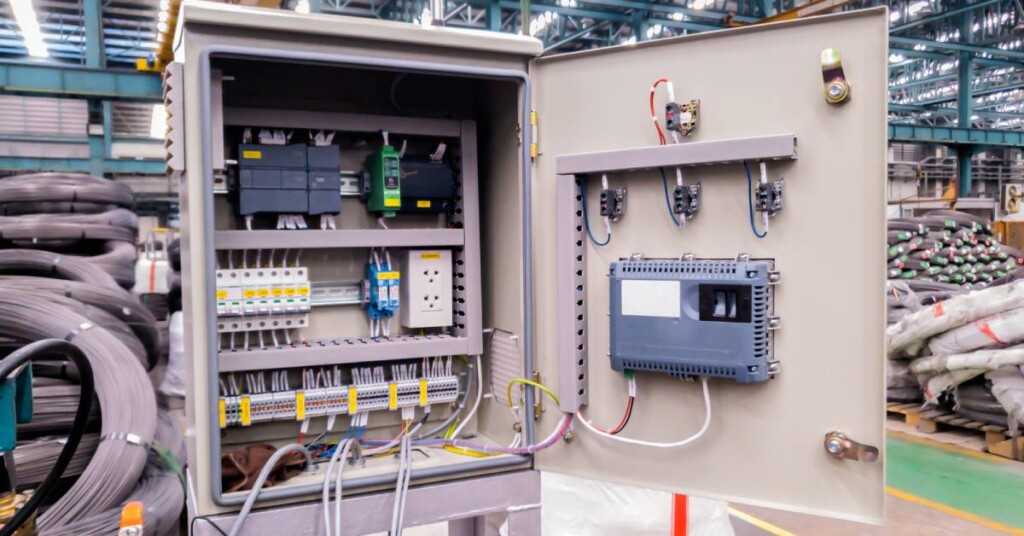In manufacturing, every piece of equipment plays a vital role in ensuring smooth operations. One often overlooked yet indispensable component is the electrical enclosure.
For factory managers and industrial electricians, understanding the importance of these enclosures can be the difference between seamless production and costly downtime. Keep reading to learn why industrial-grade enclosures are essential for factories. We’ll cover their benefits, their role in safety, different types, and more.
The Importance of Industrial-Grade Enclosures in Factories
Industrial-grade enclosures might not be the flashiest part of a factory, but we can’t overstate their importance. These robust housings protect electrical components from harsh environmental conditions, mechanical impacts, and unauthorized access.
Factories are environments full of dust, moisture, chemicals, and even extreme temperatures. Without suitable enclosures, the electrical systems become vulnerable to these elements, leading to malfunctions, safety hazards, and production interruptions.

Benefits of Using High-Quality Enclosures for Electrical Components
The primary benefit of using high-quality enclosures is the guarantee of protection for sensitive electrical components. By shielding these components, enclosures help maintain operational integrity and extend the equipment’s lifespan. This ultimately leads to significant cost savings on repairs and replacements.
Another advantage is the enhancement of overall safety. High-quality enclosures prevent accidental contact with live electrical parts, reducing the risk of electrical shocks and fires. For factory managers, this means a safer working environment and compliance with stringent safety regulations.
Industrial Electrical Enclosure Safety Standards
Understanding the standards of the National Electrical Manufacturers Association (NEMA), the Underwriters’ Laboratories (UL), and the Canadian Standards Association (CSA) is crucial for ensuring that industrial-grade enclosures meet stringent safety requirements. NEMA provides an extensive rating system that classifies enclosures based on their ability to withstand various environmental conditions, while UL focuses on product safety and performance through rigorous testing and certification processes. UL and CSA enclosure testing require qualified evaluators and site inspectors to ensure compliance and safety.
Acquiring enclosures from a UL-certified manufacturer, such as SYTECH, is critical because it guarantees that the products have undergone thorough testing for safety and reliability. Every SYTECH enclosure includes markings within the enclosure that certify it meets UL standards. This helps meet compliance with industry standards and provides peace of mind that the enclosures will perform effectively under the harsh conditions typical of industrial settings.
Different Types of Industrial Enclosures and Their Specific Applications
We’ve covered why industrial-grade enclosures are essential for factories, but not every enclosure is the same. There are various types of industrial electric enclosures, with the most common ones being metal, plastic, fiberglass, and stainless steel.
Metal Enclosures
Metal electrical enclosures have impressive durability and robustness, making them ideal for demanding industrial applications. These enclosures offer superior resistance to mechanical impacts, corrosion, and extreme temperatures. The inherent strength of metal enclosures makes them suitable for protecting electrical components in harsh environments, including those with high traffic, heavy machinery, or exposure to corrosive substances.
Additionally, metal enclosures provide excellent electromagnetic interference (EMI) shielding, which is crucial for maintaining the integrity of sensitive electronic equipment. Their applications span a wide range of industries, from manufacturing plants and automotive factories to oil and gas refineries. These industries require reliable protection of electrical systems for uninterrupted operations and compliance with stringent safety standards.
Plastic Enclosures
Plastic electrical enclosures offer a versatile and cost-effective solution for a variety of industrial applications. Constructed from materials such as polycarbonate, ABS, or fiberglass-reinforced polyester, these enclosures are lightweight yet durable. They provide ample protection against environmental factors such as dust, moisture, and corrosive chemicals.
One of the primary benefits of plastic enclosures is their resistance to rust and corrosion, making them ideal for use in environments where metal enclosures may deteriorate over time. Plastic enclosures are also not conductive, which reduces the risk of electrical shocks, enhancing overall safety. Industries such as food and beverage processing, where hygiene and chemical resistance are critical, and telecommunications and IT, where electromagnetic interference is less of a concern, often employ plastic enclosures.
Fiberglass Enclosures
Fiberglass electrical enclosures offer exceptional strength and resilience, making them an optimal choice for a wide range of industrial applications. These enclosures’ reinforced fiberglass provides high impact resistance and excellent protection against harsh environmental conditions.
One of the most significant benefits of fiberglass enclosures is their resistance to corrosion, UV radiation, and chemical exposure, ensuring long-lasting durability even in the most demanding settings. Like plastic enclosures, fiberglass is nonconductive, reducing the risk of electrical shocks. This makes them particularly suitable for outdoor applications. They’re also great in industries such as wastewater treatment, chemical processing, and marine environments, where exposure to corrosive substances and extreme weather conditions are prevalent.
Stainless Steel Enclosures
Stainless-steel electrical enclosures are synonymous with superior strength and unparalleled corrosion resistance, making them a top choice for the most demanding industrial environments. With their high-grade stainless steel, these enclosures provide formidable protection against mechanical impacts, harsh chemicals, and extreme weather conditions, ensuring the longevity and reliability of the housed electrical components.
The nonreactive nature of stainless steel also makes these enclosures ideal for places that require stringent hygiene standards, such as pharmaceutical, food and beverage processing, and medical facilities. Moreover, stainless-steel enclosures offer excellent protection against electromagnetic interference (EMI), further safeguarding sensitive electronic equipment. Their applications extend to outdoor installations, marine environments, and areas with high contamination risks.

Factors to Consider When Choosing the Right Enclosure for a Factory
Selecting the appropriate custom electric enclosure requires careful consideration of several factors, from environmental conditions to sensitive electromagnetic equipment and accessibility.
Environmental Conditions
The first step is assessing the environmental conditions of the factory. This includes temperature, humidity, the presence of dust or debris, and potential exposure to corrosive materials.
Material
As discussed earlier, different materials offer varying levels of protection and durability. Consider the environmental conditions to determine which material is best for the factory’s needs.
Electromagnetic Compatibility (EMC)
If the factory operates with sensitive electronic equipment, you must choose an enclosure that provides adequate protection against electromagnetic interference. Often, stainless-steel enclosures are the recommended choice for applications with sensitive electrical equipment.
Size and Compatibility
The enclosure must accommodate the electrical components and allow for proper ventilation, so the size of the electrical components is paramount. It should also be compatible with the equipment’s wiring and mounting requirements.
Ventilation and Cooling
Proper ventilation and cooling are crucial to ensure the equipment operates at optimal levels. The enclosure should have adequate ventilation for heat dissipation, or additional cooling options might be necessary.
Accessibility
Consider the ease of accessibility for maintenance and inspections. This includes features such as removable panels, hinged doors, and cable entry points.
By carefully evaluating these factors, factory managers and electricians can select enclosures that provide optimal protection and functionality for their specific needs.
Get a Custom Electric Enclosure for Your Factory from Sytech Inc.
Industrial-grade enclosures might seem like a minor detail in the grand scheme of factory operations, but their impact on efficiency, safety, and compliance is profound. By investing in high-quality enclosures, factories can protect their electrical components, ensure the safety of their workers, and comply with industry standards.
If you need an electric enclosure for your factory, get in touch with SYTECH. We’re here to help. Learn about our custom enclosure solutions online, or contact our staff to request a free quote for our services today.
